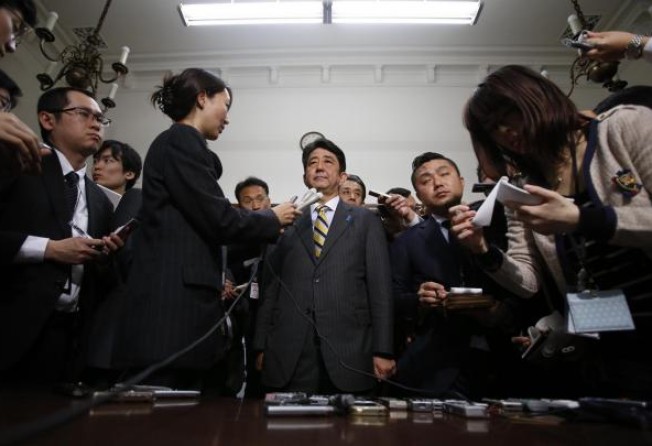Re-elected prime minister thinking big in Japan

Japan-focused investors awoke last Monday to a new reality when the Liberal Democratic Party (LDP) won a decisive victory at the polls, ushering the return of Shinzo Abe as prime minister.
So far, so similar, you might think. Abe is Japan's seventh prime minister in six-and-a-half years. Leadership turnover is a regular event in the country, and not one that necessarily excites investors.
What's different about Abe, however, is that he is proposing an aggressive monetary stimulus likely involving sustained quantitative easing. Abe last week met with the head of Japan's central bank asking for a 2 per cent inflation target. In other words, while most central banks have a mandate to keep inflation down, Abe is asking the Bank of Japan to be more assertive in battling deflation, including an ambitious inflation target.
The scale of the LDP's victory is also different from the usual stalemate scenario seen in Japanese politics. Together with its ally, the New Komeito Party, the Abe government will hold 325 of the 480 seats in the lower house of Japan's parliament. As a result, the mandate given to Abe is unambiguous: revive the economy, battle deflation and, if necessary, engineer a weaker yen. Japan could be headed for a period of rapid and major change.
This invites all sorts of questions about the independence of Japan's central bank. But the more central question for investors is: how will the Abe programme affect markets?
The most obvious place to start is with the yen, which dropped last week against major currencies, and could stay weak for a long time.
The Abe plan also has implications for Japanese stocks, which on average tend to rise as the currency falls, as a weaker yen spells more profits for exporters. Indeed, the Nikkei has jumped more than 15 per cent since October while the yen lost more than 7 per cent against the United States dollar over the same period, partly because investors were anticipating an Abe victory.
This represents a turnaround from the usual state of play, where the yen has been strong for a long time. Japanese businesses have been grappling with this yen strength for a while. According to UBS, the share of overseas production of Japanese firms rose from 13.2 per cent to 18 per cent in 2010. This implies that firms have gradually been addressing their high domestic costs by relocating production offshore. But all the while, the yen has grown stronger and deflation has persisted.
Investors can only speculate how far the Abe government can or will go to pressure the Bank of Japan to ease more aggressively and adopt a higher target rate of inflation. Investors following such events should keep an eye on elections for Japan's upper house of parliament.
In the meantime investors will unlikely see the yen return to its previous strength, in part because of the pervasive "campaign mode" that will colour the debate. Whether the current proposed economic policies can break deflation's grip on Japan's economy is another matter.
The coming weeks will likely reveal the how strong the winds of change really are. Investors should be prepared to dive back into the Japanese stock market and position for a drop in the yen, as we may yet be on to the start of something big.
Stefan Hofer is the emerging markets strategist for Bank Julius Baer